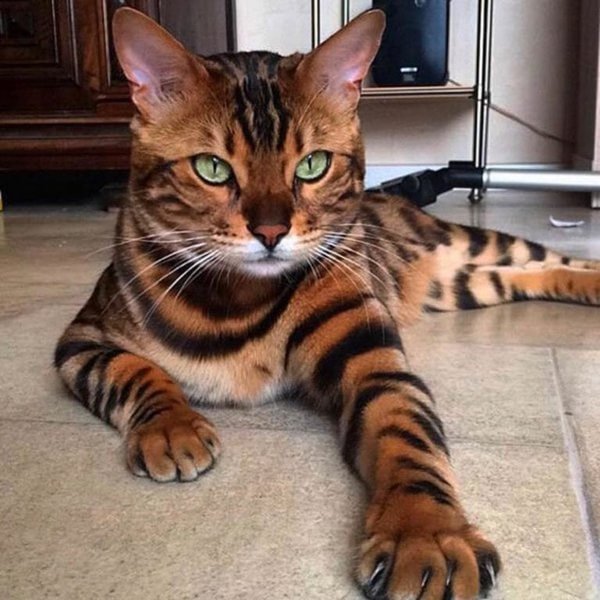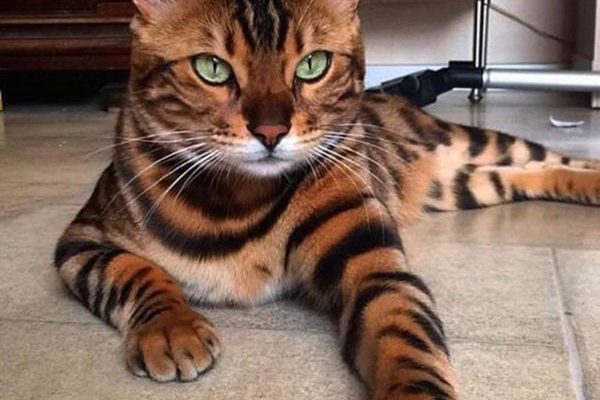
Owning one of these stunning felines can feel thrilling, but it’s essential to know the laws and regulations surrounding them. Just like how some places have strict rules about owning certain dog breeds, the same applies to cats. So let’s dive into this topic and break it down into bite-sized pieces, making it easy to understand what you need to know before bringing a unique cat into your home.
Understanding Exotic and Hybrid Cat Breeds
To start, let’s clarify what we mean by exotic and hybrid cat breeds. Exotic cats often refer to breeds that have a wild lineage but are bred to be domesticated. For instance, the Bengal is a mix of domestic cats and the wild Asian leopard cat. On the other hand, hybrid cats, like the Savannah, are a mix of domestic cats and servals, which are wild African cats.
These cats may look fierce and wild, but they often have sweet personalities. They might be more active than your average house cat, and they typically require a special environment that caters to their unique needs. Understanding these traits is essential for potential owners since they can influence whether owning such a cat is practical and legal where you live.
Legal Regulations Vary by Location
When it comes to the legality of owning exotic or hybrid cat breeds, the rules can be quite confusing. In some places, it’s perfectly legal to own a Bengal or a Savannah cat, while in other areas, you might find yourself in hot water for even thinking about it.
Laws often depend on the percentage of wild ancestry in the hybrid. For example, in some states in the U.S., cats that are more than four generations removed from their wild ancestors are considered domestic and may be legal to own. However, cats with a higher percentage of wild lineage could be classified as exotic and subject to stricter regulations.
Here are a few examples of laws by region:
- United States: Many states allow hybrids like Bengal and Savannah cats, but some states ban them completely.
- Canada: Regulations can vary by province; some allow certain hybrids, while others prohibit them.
- Europe: Many countries have specific licensing requirements for owning exotic pets, including cats.
Common Legal Restrictions
Beyond the general laws, you might encounter specific restrictions related to owning exotic or hybrid cat breeds. Some common legal barriers include:
- Permits: In many places, owning a hybrid cat requires a special permit. This usually involves demonstrating your ability to care for the animal properly.
- Breeder Restrictions: If you’re considering purchasing an exotic or hybrid cat, make sure to research whether the breeder is licensed and follows all legal guidelines.
- Health Regulations: Some regions may have health regulations for hybrid cats, ensuring that they are bred responsibly and ethically.
Feeling overwhelmed? That’s totally understandable. It’s crucial to look up your local laws before deciding to adopt an exotic or hybrid cat. Doing your homework here can save you a lot of stress down the line.
What to Consider Before Getting an Exotic Cat
So, let’s say you’ve done your research and have found out it’s legal to own your dream exotic cat. Before you take the plunge, here are a few things to think about:
1. Space: These cats often need more room to roam and play than your typical domestic cat. Make sure your home can accommodate their energy levels.
2. Time Commitment: Exotic cats can be more demanding. They require more attention, interaction, and enrichment than other breeds. If you’re busy with work or travel a lot, they might not be the best fit.
3. Veterinary Care: Not all vets are experienced with exotic breeds. Be prepared to find a veterinary clinic that can provide proper care for your unique feline.
4. Socialization: Many hybrid cats are quite social and thrive on human interaction. If you’re looking for a more independent pet, an exotic cat might not fit the bill.
Let’s not forget that owning a cat—especially an exotic one—is a long-term commitment, often lasting 15 years or more. It’s important to consider how much time and effort you’re willing to dedicate to your new furry friend.
Finding Reputable Breeders
If you’re sold on the idea of adopting an exotic or hybrid cat, the next step is finding a reputable breeder. Like any pet, it’s crucial to ensure you’re getting a healthy, well-socialized animal. Here’s how to find a responsible breeder:
1. Research: Look for breeders who are members of recognized organizations. They often adhere to ethical breeding practices.
2. Ask Questions: Don’t hesitate to ask the breeder about their practices, including health screening for the kittens, socialization efforts, and their environment.
3. Visit the Facility: If possible, visit the breeding facility to see the living conditions. Healthy, happy animals are usually kept in clean, spacious, and loving environments.
4. Get References: A good breeder will be happy to provide references from previous clients. Reach out to those references to get their experiences.
By choosing a responsible breeder, you’re not only ensuring a healthier cat but also supporting ethical breeding practices.
Owning an exotic or hybrid cat can be an incredible experience. Their unique looks and personalities can bring joy and excitement into your life. However, it’s essential to understand the legal landscape surrounding them and to consider the responsibilities that come with ownership.
Before you make a decision, weigh the pros and cons, know your local laws, and be prepared for your new companion. If you’re ready for the challenge, an exotic or hybrid cat could be a wonderful addition to your family. Above all, it’s about making a well-informed choice that benefits both you and your future furry friend.

